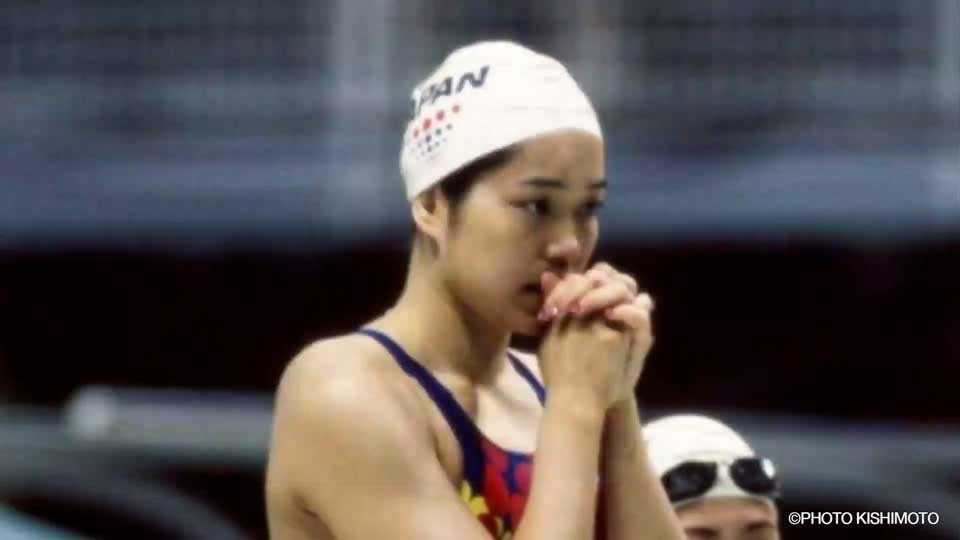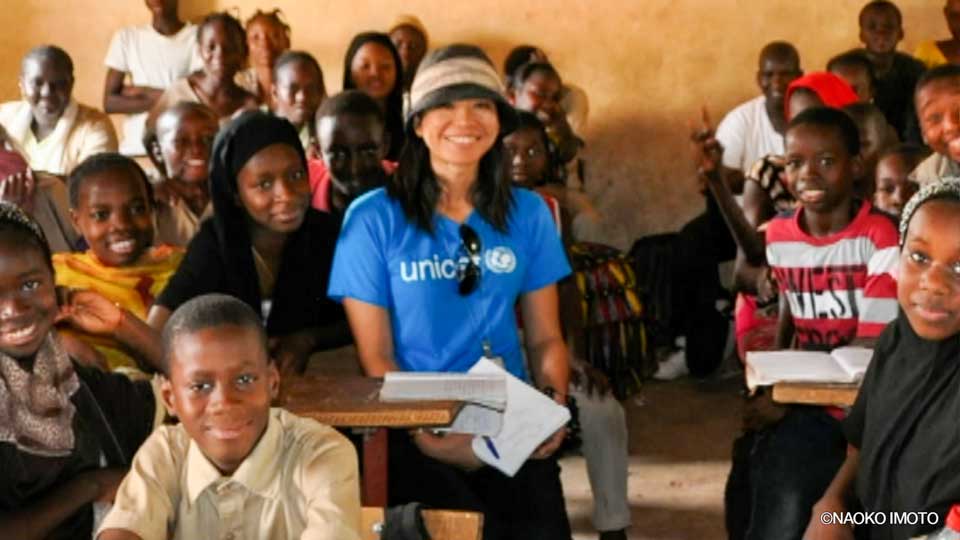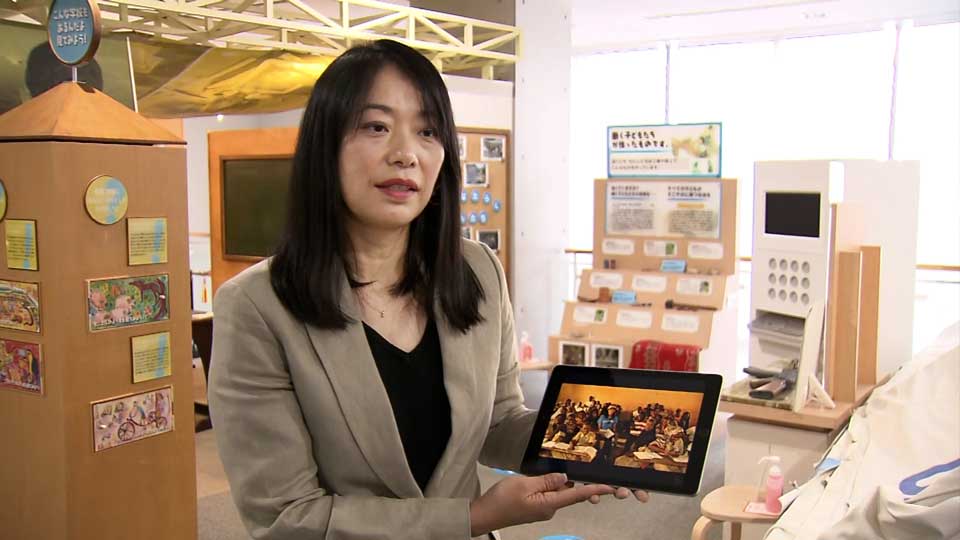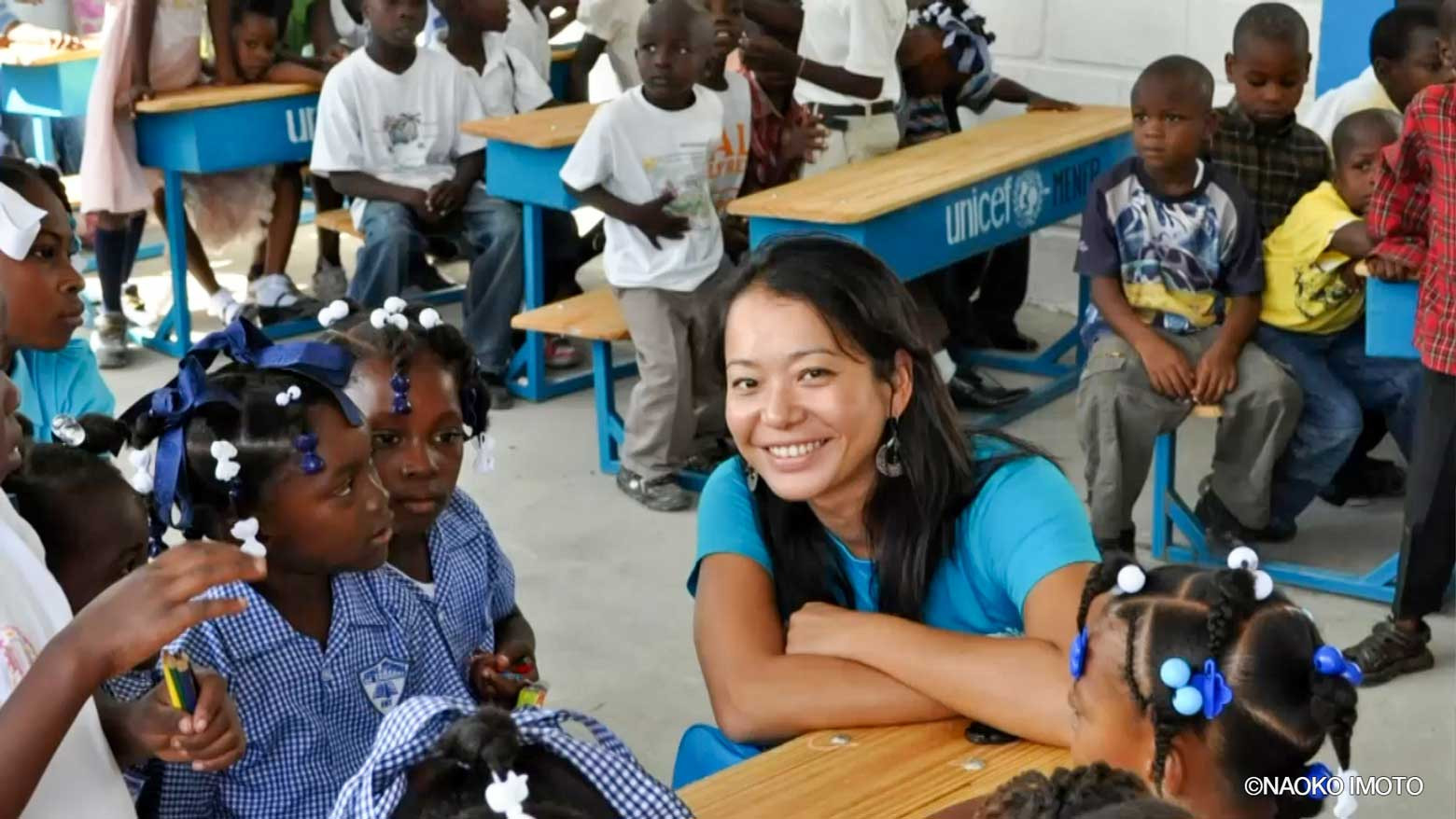Imoto represented Japan at the 1996 Atlanta Olympics. Six years before that, an experience at the 1990 Asian Games in Beijing helped shape her world view.

"I had an abundance of items that were provided by sponsors. We had everything in terms of coaching and facilities. But rival athletes that I was competing against really didn't have anything, not even goggles. I was struck by the inequality," she recalls.
International aid work
What she saw in the pool inspired Imoto to achieve another dream: working as an international aid worker. That is her chosen path after retirement from sport.
Since joining UNICEF in 2007, she has been involved in various projects to help children affected by poverty, conflict and natural disasters. Those children do not normally have access to equipment, but Imoto wants to encourage them to play sports nonetheless.
"I think sports are very important and I hope that the power of sports will be extended to these people who suffer," she says.

Barriers to competition
Imoto says she looks forward to watching a new generation of athletes at the Beijing Winter Games. At the same time, she will be thinking of the young athletes who haven't been able to get there due to circumstances beyond their control.
That includes athletes from Afghanistan who fled the nation after the government was overthrown by the Taliban, and others who may have missed qualifying events because of civil unrest or war.
"I would like the athletes and the viewers to really pay attention to the backgrounds of the competitors so we can really feel what's happening in the world and feel the message for unity and solidarity," she says.

When Imoto saw the inequality that existed in sport, she took action. She hopes to inspire others to do the same. "It's all of our responsibility to convey the message of peace and how much we care about the world. We need to think about people who are suffering in conflicts and others who are being denied their human rights."

